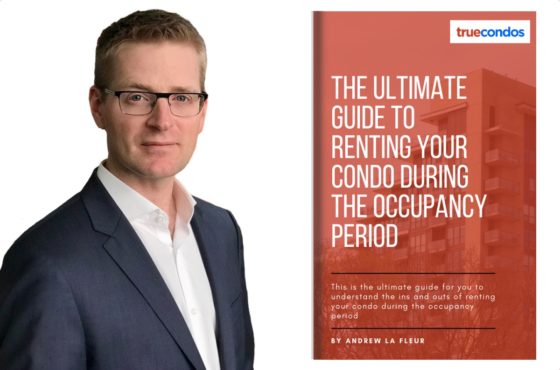The Number One Secret Most Condo Investors Don’t Even Know About

There is a secret in the world of condo investing that most people have no idea about, but one that is a game-changer for those who understand what it is and how to use it for their benefit…
If you already own an investment condo in Toronto, then what I’m about to tell you could literally add significant profit to your bottom line this year.
If you don’t own any investment condos yet, or if you only have owned freehold properties in the past, this information will likely cause you to start looking at investing in condos in a totally different light.
And the best part, and why I’m writing this blog post now is that this secret is especially relevant TODAY.
Background Information
I promise I will get to exactly what the secret is in a minute, but first a little background information.
The condo market has been hot for years in Toronto. Investors have made a lot of money by simply buying units on plan, waiting 3-4 years for them to be built, then flipping them for a profit. Prices have risen at an average of about 8% per year downtown for the last several years.
At the same time, the rental market for condos has been very strong too. Investors who own downtown units close to transit lines have never had a problem renting out their units. The vacancy rate for condos has consistently been very close to zero and rental prices have been slowly climbing.
Market Shift
So the condo market has been great. Over the last year however, there has been a pretty significant shift in the market.
Sales of condos (both new and resale) have slowed down to the tune of 20-30% less than they were a year ago. But at the same time, the rental market is actually hotter than ever! The number of condos rented downtown in September for example was up 33% compared to last year.
Sales are down, but rentals are up. It seems that a huge chunk of the market that was planning on buying a condo this year, has decided to hold off and rent for another year instead (the new mortgage rules played a part in this). The result is that there has been tremendous upward pressure on rental prices. In many buildings the average unit has gone up in price as much as 10-15% over the last year.
The Secret
Ok enough background information, want to know what the secret is?
Condominiums that were built after 1998 in Ontario are NOT subject to rent controls.
In plain language, this is what it means: if you are an investor who owns a condo that was built after 1998, once your initial 12-month lease period with your tenant has expired, and you have a tenant who is renting from you month-to-month, you are not limited to increasing the rent by the amount permitted by the Ministry of Municipal Affairs rental increase guidelines (3.1% for 2012). You can increase the rent by any amount you wish. It could be $50/month or $500/month or $5000/month.
Wow. Let that sink in for a minute. There is no limit to the increase you can ask for on your investment condo.
This is not a new rule, it has been in effect for years but as I said, most landlords don’t know about it. Certainly most real estate agents don’t know about it.
So, why is this particularly relevant today?
Because there are probably hundreds of landlords out there right now who are renting out their condos for below market value. As I said, rental prices in many buildings have increased significantly in the past year and many landlords are either unaware of this, or they are unaware that they can legally do something to take advantage of the increase in the rental market.
ACTION PLAN FOR CONDO INVESTORS:
1. Call your real estate agent right now.
Get on the phone and call your agent. Tell them you just read this blog post. If you don’t have an agent, contact me.
2. Figure out the current market rate.
Do your homework and analysis with your agent to determine what you should be charging for your unit. You might be surprised. If you are getting market value, then great. Sleep easy at night. If you determine that rates have gone up for your type of unit, then
3. Fill out the N2 form
You must fill out the proper paperwork and submit it in writing with 90 days notice to your tenant before any increase can be made. Here is the link to the N2 form required to provide notice of a rental increase. Remember, you can only do this if your lease agreement has expired! It cannot be done midway through a lease.
4. Be prepared to lose your current tenant.
Just because you can increase your rent, doesn’t mean your tenant will accept it. They might just move out if the increase is too burdensome. So be prepared for this outcome and understand you might have to hit the pavement and find a new tenant. If you are not happy with your current tenant, this could also be used as a way to get vacant possession of the unit for finding a new tenant or putting it up for sale. If you have a high quality tenant that you are happy with, you will want to think carefully before raising the rent on them.
5. Post your results in the comments section below.
I’d love to hear how this information helped make you money! Or feel leave a question in the comments section as well.
For more valuable information like this, please become a True Condos subscriber (it’s free).



